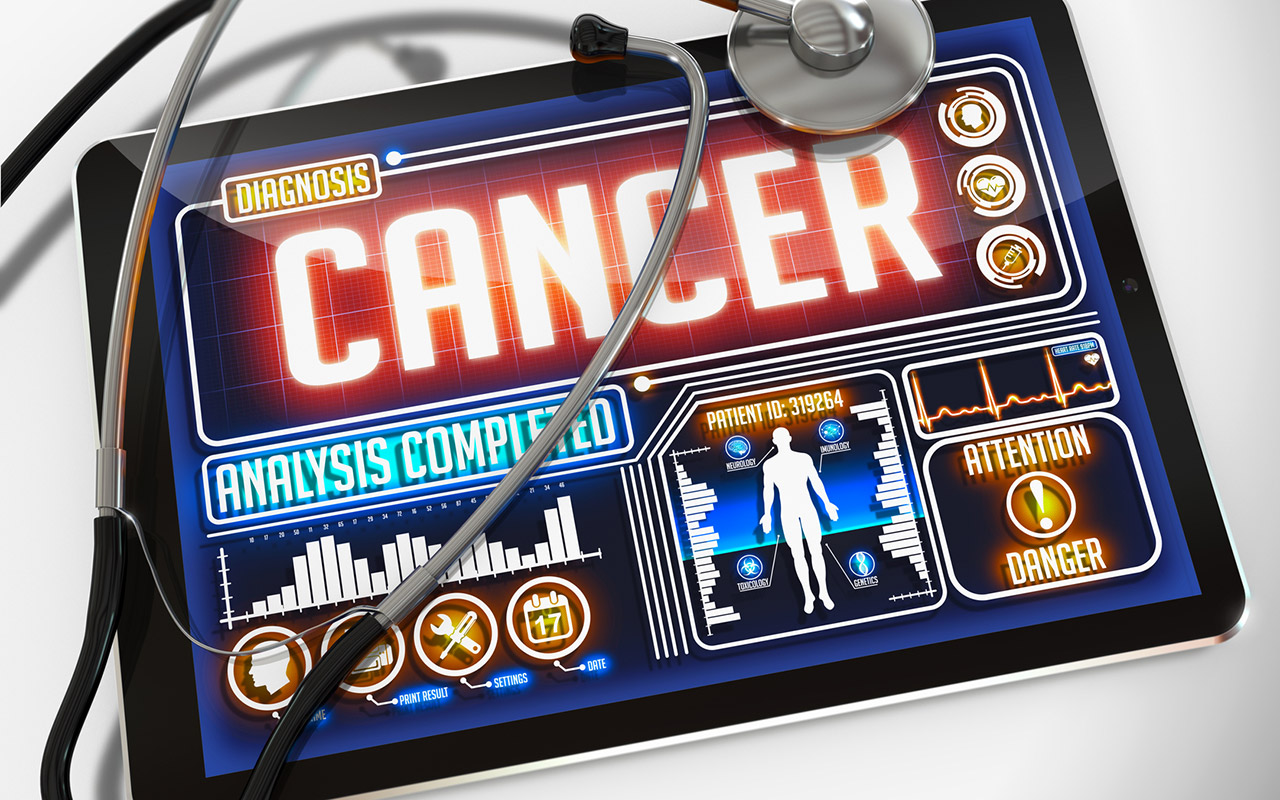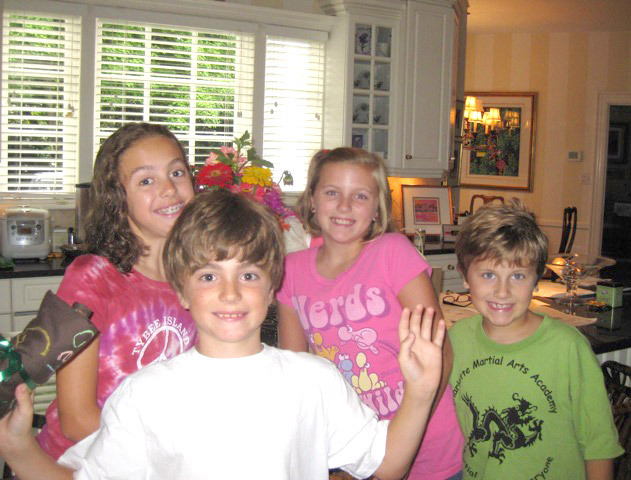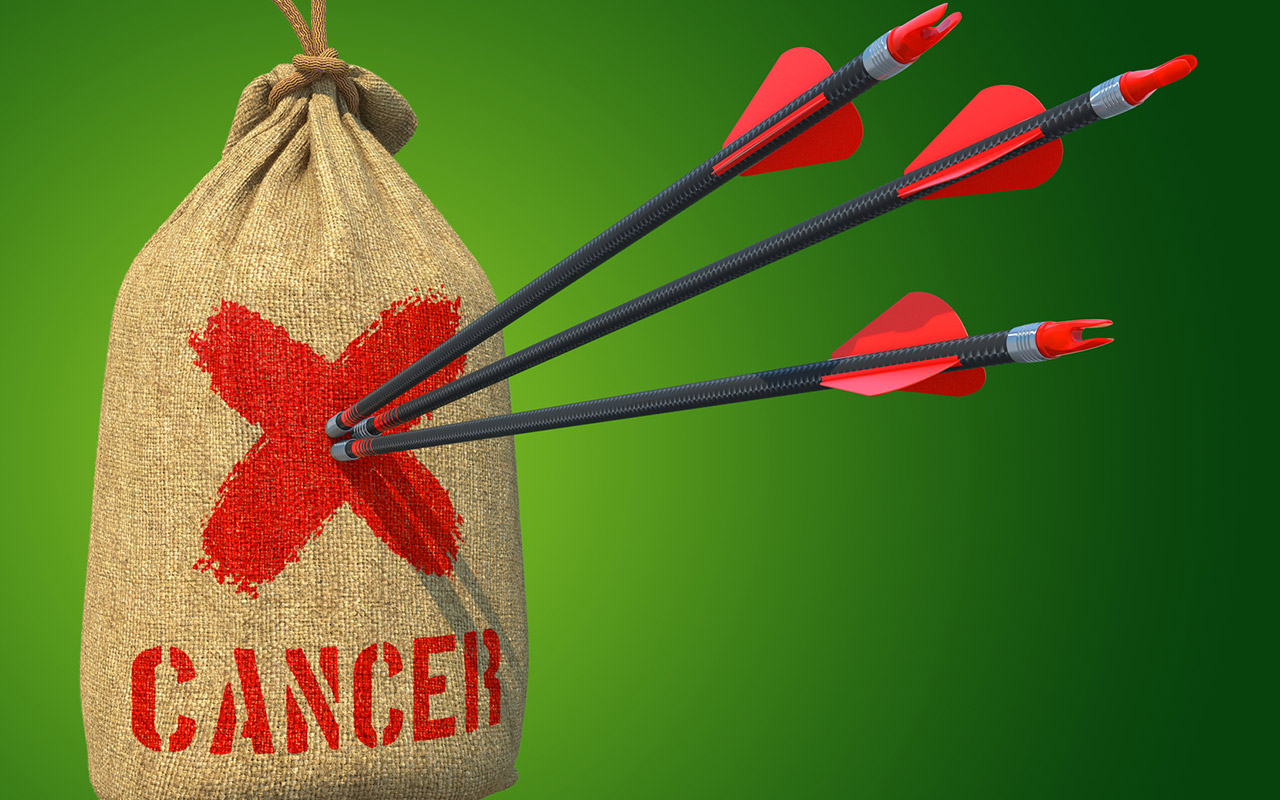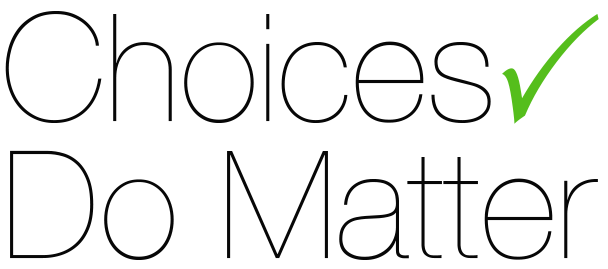
The only words I remember hearing when I woke up after surgery.
The folks at Long’s Cleaners gave me a button that said “Cancer Sucks”. I never wore it. I didn’t like the word – and later I didn’t like the message.
Of course cancer is bad, but if you are lucky enough to survive, cancer can be a great life coach. Cancer is the darkness that makes you appreciate the light.
My cancer showed me that life is better and more valuable when you enjoy each moment and stay focused on all the positives of every experience unfolding around you.
Cancer changes your perspective – your priorities. As a typical Type A business owner, I told the Radiation Oncologist that I might be able to work in time each day for my radiation appointment, like – you know – cancer will just need to adjust to my busy schedule. Yes, I really said that. The doctor just looked me in the eye and said, “Be here each morning at 10:00 AM sharp! Got it?!?”
A huge wake-up call was about to hit – there was a new world order and it did not revolve around me – only my cure.
Daily radiation, intravenous fluids, liquid nutrition via a feeding tube, chemotherapy along with the check ups with the medical oncologist and radiation oncologist were all running this show – not me.
The button should have said, “Cancer is in Charge Now – back off.”
My cancer was Squamous Cell Carcinoma in my left neck and tongue (Grade 1 in one sample and Grade 3 in the other tongue sample). It was to be treated with chemotherapy and radiation. Thankfully, the doctors were focused on a cure from the beginning, not just remission. That single word – cure – gave me hope.
Radiation to the head and neck is one of the most painful for the patient, say the doctors, and my treatment was painful, but when I could remember – cure – the pain became more tolerable. The daily multiple strands of laser radiation, moved around my body while focused precisely on the cancer spots in my neck, it closed my scorched throat.
Soon I could not taste or swallow anything – not even a sip of water. The thick mucus that built up in my mouth and throat gagged me often as my body convulsed to discharge the sticky fluid.
In the early days of my journey I was full of energy and enthusiasm – driving myself to the hospital, walking briskly to the cancer wing, visiting with other patients in the waiting room. That all changed quickly.
Soon I needed my wife to drive me to the hospital. After awhile, I could no longer walk and needed a wheel chair. Instead of bursting into the waiting room full of energy and enthusiasm, I became quiet and withdrawn, just like the patients I encountered when I first started this unchosen journey.
My mornings were spent in radiation and my afternoons in the infusion room receiving fluids for dehydration. There were several overnight stays for complete blood transfusions. My veins became small and difficult for nurses to get a needle into. My arms looked like a very active IV drug user.
Cancer slowed me down, every action was an effort. Things I once did on autopilot I now needed to think about. This turned into a good thing, as my ‘multi-tasking’ moved to ‘focused-tasking.’
When I slowed down, I started to notice things I never noticed before – my hearing improved – or maybe I just listened better. I began to actually hear what others were saying instead of just waiting for my turn to talk – my actions were more deliberate – more focused.
Appreciation – awareness of those less fortunate – compassion – empathy. All of these took on new meaning as I explored my own darkness.
Before my chemotherapy or radiation began, I required a feeding tube – the surgeon simply punched a hole through my abdomen and into my stomach; then inserted a plastic tube. I fed myself by using a large syringe to pump liquid nutrition into my body – 560 calories and 22.5 g of protein in an 8 oz. can – four times per day.
The feeding tube was the only way to receive nutrition and hydration for four months, even after the end of radiation. Joyce and I did not have one meal together for 17 weeks – not even my wife of almost 50 years wanted to sit down for a quiet meal while I pumped liquid food into your stomach.
I lost hair, weight and energy. The daily 2240 calories and 90 g of protein were not enough – even a walk in our small back yard required a rest on a bench.
Our daughter developed a CarringBridge site and it was a constant inspiration for me; on nights when I could not sleep I would read and re-read the prayers and well wishes posted by so many prayer warriors. Their kind words always lifted my spirits.
When I had the opportunity I would ask the folks I talked with, “How has cancer affected you and your family?” This simple question gave people the opportunity to share their stories with me. I saw how darkness affects all of us at some time and how some of us deal with it well and others need more encouragement.

Our four grandchildren visited on the morning of July 14, 2010 to present me with a custom tee shirt they had painted by hand for my birthday. It said, “…get well soon, granddaddy.”
A friend recently gave me a book, Learning to Walk in the Dark, by Barbara Brown Taylor.
The author explores the value of darkness and how it is necessary to understand the joy of light.
Inspired by the world’s great religious teachers who spent time in caves, to explore literal and spiritual darkness, Taylor explored her own darkness by spending time in a cave in West Virginia.
The two – darkness and light – balance each other and are necessary, each for the other’s understanding. All opposites are part of the same whole, the darkness gives way to the light as the light fades to darkness. Thus is nature – thus is life.
We all have caves we enter from time to time but facing mortality when you have a diagnosis like cancer can lead us even deeper into our spiritual cave. It did for me.
Then, finally, the darkness gives way to the light. Without one, the other has no meaning.
For me, the cancer, and the positive outcome were a good thing; a trip into a cave and then a return to the light.
 Ten weeks after the ordeal began – my friends in the Radiation Department at Presbyterian Hospital gathered around to ring a large bell mounted on the wall, and gave me a certificate of completion.
Ten weeks after the ordeal began – my friends in the Radiation Department at Presbyterian Hospital gathered around to ring a large bell mounted on the wall, and gave me a certificate of completion.
They even offered me the mask that had been custom molded for my face. It was used to secure me to the radiation table without the slightest movement for my 20 minute daily treatment (the longest 20 minutes of my life, by the way). I told them, “no thank you. I am done with it.”
I was sent out the door in a wheelchair, a different person than the one who had bounded in ten long weeks earlier.
I knew my life had changed and I was grateful to begin living more fully, enjoying each moment. However, I was not prepared for how long it would take to get back into a normal routine – to begin eating normally, walking, and talking. My recovery was slow. Leaving the cave can take time.
Choices Do Matter and mine were good – I never even considered giving up.
My cancer was five years ago. In some ways it seems like yesterday, in other ways it was only a dream.
Have you faced similar choices? When would giving up be an option?
For me, the words, “going for a cure” were what I needed to hear, they made all the suffering bearable. How would those words help someone versus “giving you a little more time” or something similar?
Have you spent any time in caves – either literally or figuratively? Has darkness ever overtaken you and then changed you?
As always the conversation starts here.

Bruce — what a great post! I’m grateful to have read your reflections and agree wholeheartedly that our time in the dark helps us appreciate the light. I too loved the BBT book on darkness and found it very helpful as I grieve my mom’s death. Recently saw this quote, which also fits the theme: “There are as many nights as days, and the one is just as long as the other in the year’s course. Even a happy life cannot be without a measure of darkness, and the word ‘happy’ would lose its meaning if it were not balanced… Read more »
Lynsley,
Thank you for the Carl Jung quote. It is so true.
I remember your post from November of last year and was happy to read it again.
Your comments are always welcome here.
–Bruce
Bruce, thank you for sharing your experience in this blog — very powerful. I am glad that you had the “cure” to motivate you, which I’m sure made it much easier for you to choose life. I really admire people who may not have the “cure” option, but still make the choice to appreciate and enjoy life as much as they can.
Jill, I agree. Well said. Yes, the true heroes keep going even when they are given a different longer term outcome.
– Bruce
A well written story that really makes you think about this journey through life. So inspiring that you embrace well-being the way you do! My motto has always been “failure is NOT an option!”.
Chris, Good to hear from you. I agree, failure is not an option. Thank you for reading and following along. Please share freely. The more in the conversation the better. Your friends can sign up for the email or like and follow on FB and Twitter.
–Bruce
Bruce:
My mother sent me your link. Thank you so much for this beautifully written piece.
I am the honorary survivor chair of our Komen Ozark Race for the Cure later this month and have been blogging for them… Two, “A Culture of Counting” and “I Hate Cancer More then I Hate Running” are up now and the third should be tomorrow.
Thank you again for this meaningful work!
Best,
Marybeth
Marybeth, thank you for the comment and congratulations on both your survivorship and in being the honorary survivor chair of our Komen Ozark Race for the Cure. Your blog is inspiring. I would like to feature some of your post on Choices Do Matter, if that is okay with you.
– Bruce
[…] Bruce: Choices Do Matter https://www.choicesdomatter.org/you-have-cancer/ […]
Amy,
Thank you for connecting Choices Do Matter and Jim Willett. Yes, What a Day!
–Bruce
Bruce,
This just rings out with your true spirit of optimism. I like the part about balance and taking in the good to counter the bad. I’m glad you got the cure!
Wade –
Thank you. I’m glad the doctors went for a cure also.
I think we all optimistically go to bed with a belief the sun will rise in the morning. At least that’s my plan.
I’m always happy when you are part of this conversation.
– Bruce